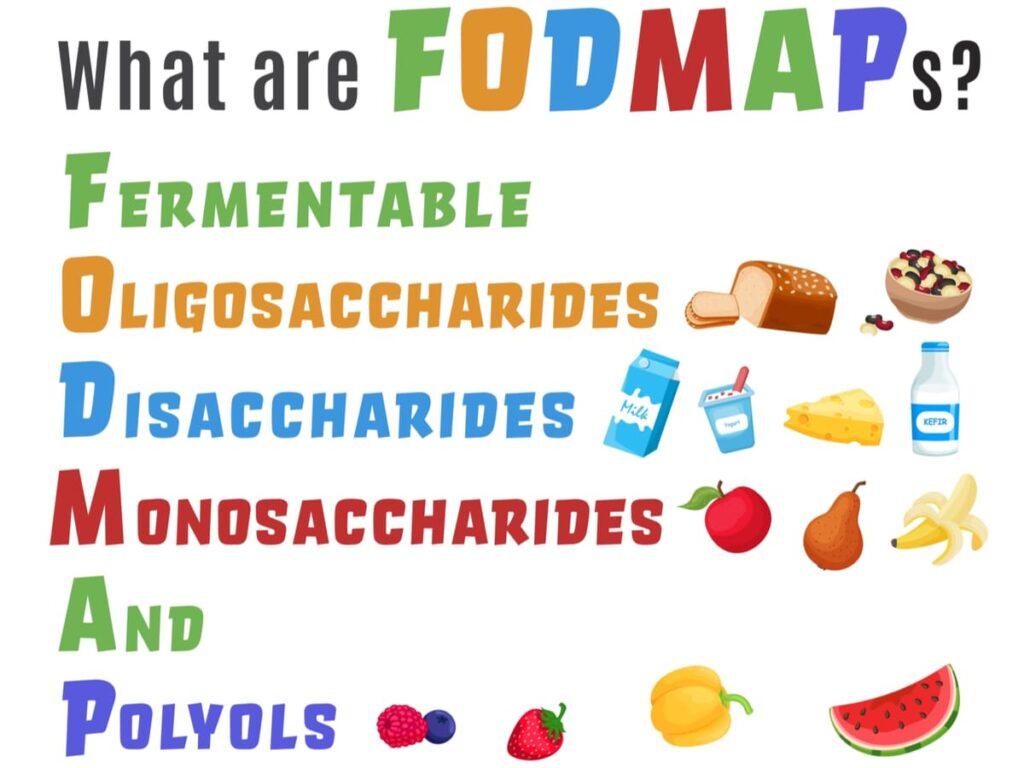Reasons Why The "Low FODMAP Diet" Failed You

The low-FODMAP diet is used commonly to help manage IBS, with over 70% of diet followers seeing improvements in their often debilitating symptoms
If you have migraine and IBS symptoms, you probably know that the two are closely linked.
Some of you will have also tried to fix your IBS symptoms through an elimination diet such as the low-fodmap diet; if you haven't tried this yet, even better, as you can avoid these costly mistakes.
A few of you may have found some success.
But a vast majority, perhaps like you, are still suffering from both IBS and migraines.
Chances are, you're wondering why it hasn't worked for you and what you can do about it.

Here are 3 reasons why the low FODMAP diet failed you.
If you've been told you have irritable bowel syndrome (IBS) or have had painful bloating, you know how debilitating and lonely it can be. The low-FODMAP diet is used commonly to help manage IBS, with over 70% of diet followers seeing improvements in their often debilitating symptoms.
However, it often fails to completely resolve the symptoms, leaving people frustrated and unsure where to turn next.
There is a great deal of misinformation and conflicting advice surrounding the diet, and without the right support and guidance it can be incredibly confusing to follow and may be limiting your results.
Some common reasons why the Low FODMAP Diet is failing include:
Your diagnosis is wrong.
GPs and gastroenterologists alike will agree that diagnosing IBS can be a tricky task. IBS has a series of symptoms that can overlap with other gastrointestinal conditions, making it difficult to determine the root cause of your discomfort. The Low FODMAP diet was developed to treat IBS symptoms; starting the diet if you do not have IBS will often result in no relief. In my experience, I have seen patients diagnosed with IBS go on to discover that they in fact have coeliac disease. It is important when contemplating starting the diet, seek the advice of your GP or dietitian to help accurately assess whether the diet is the right fit for you and your needs.
You stayed on it for too long.
In contrast to other GI conditions such as coeliac disease, which requires a strict gluten-free diet for life, those with IBS do not need to follow a strict low-FODMAP diet indefinitely. The diet is an elimination diet that is meant to help you figure out which foods or, more specifically, which FODMAPs are making your symptoms worse. If you eat a diet low in FODMAPs for a long time, it can be bad for your gut health because it limits your intake of fiber-rich foods like fruits, vegetables, and grains, which are good for your gut. Getting help from a dietitian during the three phases of the diet will make the process go more smoothly and keep you from feeling too restricted or uncomfortable.
You didn’t make it to the reintroduction phase.
Following on from the last reason, often if the diet is being followed long term, FODMAP challenges have not been conducted. A FODMAP challenge refers to the slow and targeted reintroduction and tolerance testing of each type of FODMAP. This is a super important stage in the process as it allows greater insight into which foods are causing symptom flares. This stage ensures maximum variety, minimum symptoms, and of course, a healthy gut!
How can I get better symptom relief?

With the guidance and support of an IBS dietitian. Our dietitians have received advanced training and are skilled in accessing, advising, prescribing, and troubleshooting the Low FODMAP diet. They work together with you to create your own personalised IBS management toolbox to help you get back to living your life confidently!
To get started on your IBS FIX journey today, click the link here to book.
Have questions before getting started? Book a free 15 min chat with Maddie here
CLAIM YOUR $50 VOUCHER AT THE HEALTH COLLECTIVE
Fill out the form below
For New patients to The Health Collective only.
One voucher per person for select services including Chinese Medicine, Acupuncture, Dietetics, Nutrition, Massage.

 DAMIAN POUSTIE Poustie
DAMIAN POUSTIE Poustie 
